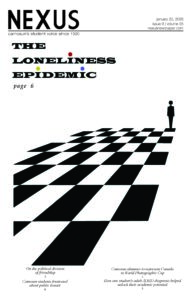They come to the battleground outraged. They come blaring rhetoric. They come holding their common sense and their family values and their freedom high. And then they come asking us to strip ours, in the midst of the culture war.
It’s a sentiment we hear more often as politics become more loudly sung (or more loudly heard): don’t let politics get in the way of your friendships. But it is so often those who express it who seem not to understand what the politics they speak of inform. And it seems so often to be those who praise it who have, moments earlier, voted away another’s right to exist.
The image of a gun-toting reactionary holding hands with the anarchist punk may seem immediately endearing to some, but it also poses a question of what they have forgone to find alliance, and who’ve they forgone.

If politics exist as a collection of morals and empathies and necessities, which they do, then it is a movement against better judgement that politics be swept aside, sweeping along with them the lives and social protections I long for government and its citizens to protect. As if to say that morals are contingent on how much one craves a boy’s night—surely there is little reason to believe in anything at all if civility with the oppressor is indispensable.
What we have here is an assumption that friendship is based on only the frivolous, that when one gabs and mingles, there is not an underlying solidarity with the other’s inner psyche, and what happens in all the gabbing and mingling is therefore permissible. What it fails to recognize is who is capable of sweeping their sentiments aside, and thus if any should at all. Should the trans person be capable of putting aside their identity in order for civility? Should Indigenous folks shake hands with the people who want so violently to strip away their land? Should a woman have to fraternize with the man who believes her to be lesser?
The privilege to befriend your opponent is that of a small demographic who have nothing to lose in the battle for human rights. That is why it’s left to those with the option of solidarity to do so with those who need it most, in a culture of regression.
There’s a portrayal of the easy-going fun-loving character, so open minded that they’ve got no mind at all, that argues putting aside one’s political beliefs is a virtuous act. The character is mature and brave for their ability to agree to disagree. Love conquers all, it affectionately proclaims. But if the disagreement lives beyond dining in or out, and into a new realm, the denial of existence, then there lies an empty chest where virtue once filled.
Discussion continues to be a vital tool in understanding the broader view, and it’s instrumental to the progress of a better world made not just for the few. But if discussion is lost among a ball game or a movie night, I’m afraid the culture crying out to be saved has just been let go.
